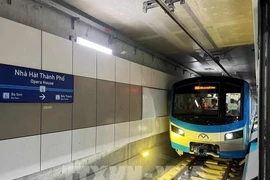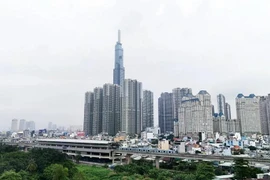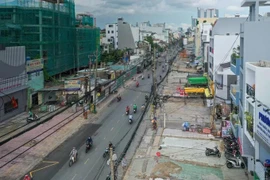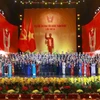HCM City (VNA) – A series of major corporation have proposed to build urban railway lines in Ho Chi Minh City, helping the city complete a metro network of more than 500km in the next two decades.
The Dai Dung Corporation, Construction Corporation No. 1 Joint Stock Company (CC1) and Hoa Phat Group have formed a partnership called DCH and proposed the HCM City People's Committee allow them to participate in local urban railway projects as the EPC (engineering, procurement, and construction) general contractor.
Accordingly, the DCH wants to study and invest in three key railway lines – Metro Line No. 2 (Ben Thanh – Tham Luong), the Thu Thiem – Long Thanh railway line, and the Binh Duong New City – Suoi Tien line.
Previously, Vingroup submitted a proposal to the municipal People's Committee to build a metro line worth about 102.37 trillion (4.09 billion USD) connecting the city's centre with Can Gio island district. The 48.5km route is expected to have a maximum speed of 250km per hour, doubling that of the lines now under construction, and be completed in just two years.
According to the city’s Department of Construction, Vingroup proposed investment under the form of public-private partnership (PPP). After receiving approval from the municipal administration, it is speeding up the completion of investment documentation and a pre-feasibility study report. If procedures are finalised early, work can start in early 2026. Thus, in the most favourable conditions, HCM City can have the first urban railway line entirely implemented by a private enterprise by 2028.
Chairman of the municipal People's Committee Nguyen Van Duoc recently revealed that in addition to Vingroup, Gamuda Group and Vietjet have also expressed interest in and registered to build several routes such as the one from the city's centre to the airport or Metro Line No. 2.
According to the city’s master plan for the 2021–2030 period, with a vision to 2050, HCM City will build 12 metro lines with a total length of more than 600km, connecting Tan Son Nhat airport, urban areas, suburban districts, and neighbouring provinces. It aims to complete seven metro lines with a total length of about 355km by 2035, requiring an investment of about 40.2 billion USD.
Prof. Dr. Vo Xuan Vinh, Director of the Institute of Business Research under the University of Economics Ho Chi Minh City, said that after the Politburo issued Resolution 68 on private sector development, private enterprises are becoming more excited about large projects and ready to accept risks.
Vinh said characterised by large investment and long time for capital recovery, in the past, urban railway projects in both HCM City and Hanoi mainly depended on official development assistance (ODA) capital.
This time, when large private enterprises of Vietnam participate in these projects, they will certainly make big changes to progress. To ensure their own interests, they will have a mechanism to mobilise capital and implement projects quickly to ensure the best progress and quality. Thus, the city will have the opportunity to build an urban railway network in a fast, quality, and cost-saving manner, he noted.
Speaking about attracting private investment for urban railway projects, Dr. Nguyen Quoc Hien, deputy head of the HCM City Management Authority for Urban Railways, said that some PPP projects in Hong Kong (China), China, and the Republic of Korea are often carried out in the form of Build-Transfer-Operate (BTO), Build-Transfer-Lease (BTL), or Build-Lease-Transfer (BLT).
The National Assembly’s Resolution No. 188/2025/QH15 on piloting a number of specific and special mechanisms and policies to develop the urban railway systems in Hanoi and HCM City has not mentioned these forms of investment. Therefore, more legal corridors are needed to attract private enterprises to the urban railway sector, Hien said./.
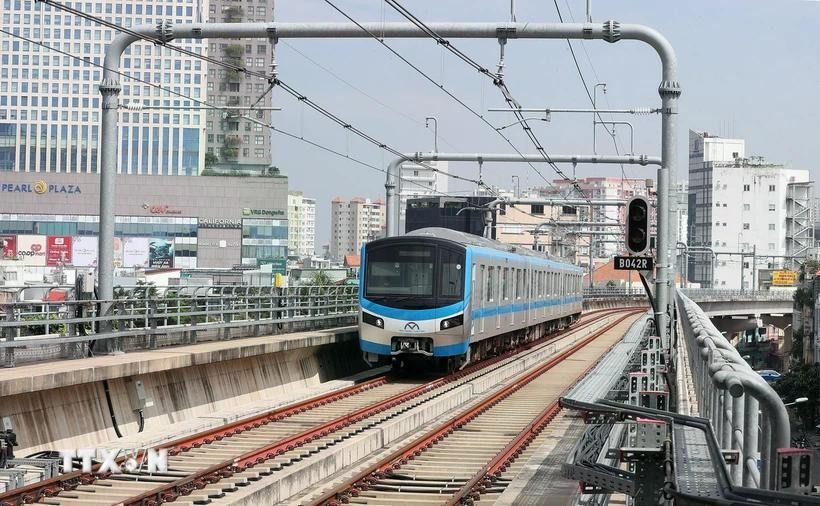
See more

VASEP forecasts pangasius exports to hit 2.3 billion USD this year
VASEP forecasts that pangasius export turnover could reach around 2.3 billion USD in 2026, supported by tightening global whitefish supplies and improving demand in several key markets.
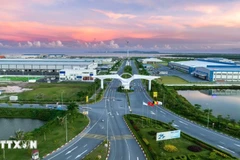
Hai Phong city targets 4.3 billion USD in FDI in 2026
Hai Phong’s investment appeal is underpinned by a rapidly expanding development space, including the Southern Coastal Economic Zone covering more than 20,000 hectares, a planned free trade zone, deep-water ports at Lach Huyen, and 12 industrial parks newly established in 2025.
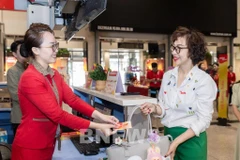
Vietjet shifts domestic check-in at Tan Son Nhat from January 13
During the recent New Year 2026 holiday peak, Vietjet added 380 flights, equivalent to nearly 78,000 additional seats, on many key domestic routes linking Hanoi and Ho Chi Minh City with destinations such as Vinh, Thanh Hoa, Hai Phong, Da Nang, Phu Quoc, Nha Trang and Da Lat.

Capital sources expanded for sustainable growth
According to the State Bank of Vietnam (SBV), by the end of November 2025, outstanding green credit was estimated at around 750 trillion VND (28.55 billion USD), with an average growth rate exceeding that of overall credit in the economy.

Traceability emerges as protective shield for Vietnam’s exports
Traceability data are evolving into a critical layer of protection, helping exporters reduce tariff risks, shorten inspection times and strengthen proof of origin, thereby avoiding exclusion from formal distribution networks.
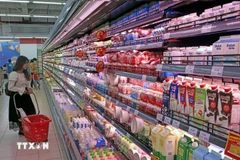
Retail market expands sharply, sustainability challenges persist
According to a report on recently released by the Ministry of Industry and Trade’s Agency for Domestic Market Surveillance and Development, the size of the market reached more than 7 quadrillion VND (about 266 billion USD) in 2025, up around 10% compared with 2024.
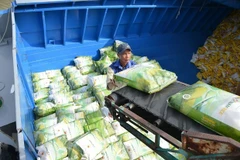
Vietnam eyes Israel as promising rice market under free trade deal
The Vietnam - Israel Free Trade Agreement (VIFTA), which took effect in late 2024, is poised to provide a fresh boost to agricultural exports, with rice at the forefront.

Resolution 79: State economy to lead growth
Resolution 79 is described as a “clear action declaration” by the Politburo, saying the state economy is not only responsible for maintaining macroeconomic stability, but must also become the force leading a new growth model that is green and sustainable.

Leveraging export advantages within RCEP region
In 2025, seafood exports to China alone exceeded 2.2 billion USD, up about 33% compared to 2024. Shipments to Japan fetched nearly 1.7 billion USD, a year-on-year increase of 14.6%, while those to the Republic of Korea and Australia grew by 9.6% and 3.2%, respectively.
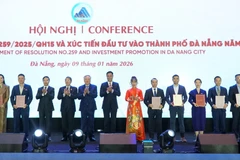
Da Nang continues targeted investment promotion approaches
According to Chairman of the Da Nang People’s Committee Pham Duc An, the city prioritises building sustainable economic ecosystems and focuses on key breakthrough sectors with strong spillover effects, including high technology and digital transformation, logistics, urban infrastructure, finance, processing and manufacturing industries, high-tech agriculture, and the pharmaceutical and medicinal herb industry.
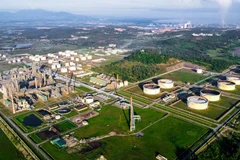
📝OP-ED: Resolution 79 – Launchpad for national aspirations
Resolution 79 is not only about SOEs. At a deeper level, it is about how Vietnam reorganises its development drivers in a world that is changing at breakneck speed.
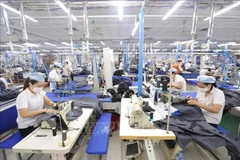
UOB raises Vietnam’s 2026 GDP growth forecast to 7.5%
In 2025, Vietnam’s GDP grew by 8%, beating UOB’s forecast of 7.7% but still falling short of the Government’s target of 8.3–8.5%, which would have needed an extraordinary boost in the final quarter.
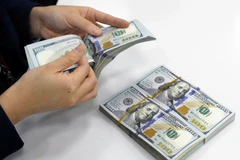
Reference exchange rate up 4 VND on January 10
With the current trading band of +/- 5%, the ceiling rate applicable for commercial banks during the day is 26,388 VND/USD, and the floor rate 23,874 VND/USD.

Infrastructure key to unlocking tourism’s role in double-digit growth target
With transport links running smoothly, urban infrastructure upgraded and digital platforms built out in a more systematic way, tourism would move beyond a purely consumption-driven sector to become a deeper, more durable engine of growth.

Hyundai sales in Vietnam rise almost 23% in December
In 2025, sales reached 53,229 vehicles across the market, a result considered a testament to the efforts by TC Group, Hyundai Thanh Cong, and the entire Hyundai dealership network nationwide amidst a volatile market.
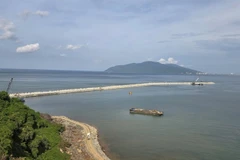
Da Nang approves plan key infrastructure developers at FTZ
The Da Nang FTZ is expected to contribute 17.9% to the city’s gross regional domestic product and create 127,000 jobs by 2040, with total investment needs estimated at 40 trillion VND (1.6 billion USD).

HCM City accelerates shift toward ecological urban agriculture
The city’s agricultural sector is undergoing a strong transformation, restructuring toward higher value-added and sustainable development. In recent years, the sector has maintained steady growth, with agricultural, forestry and fisheries output rising by an estimated 2.5% annually.
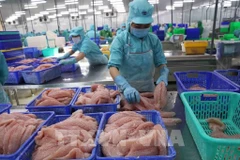
Vietnam records biggest trade surplus with Netherlands among European partners
Vietnam’s exports to the Netherlands totalled 13.5 billion USD last year, up 3.7% compared to 2024, while imports stood at 825 million USD, rising 5.2%.
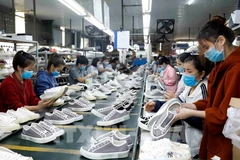
Footwear-leather industry seeks new drivers to sustain growth
Vietnam currently ranks third globally in footwear production, with around 1.4 billion pairs manufactured annually, behind China and India, and second in exports with approximately 1.3 billion pairs a year.
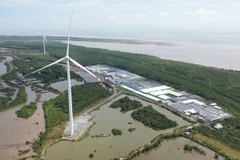
Sunpro - Ben Tre wind power plant becomes operational in Vinh Long
The plant features seven turbines and has a total investment of about 1.6 trillion VND (60.9 million USD), expected to generate 89.5 GWh per year, enough to supply electricity for about 27,000 households.
